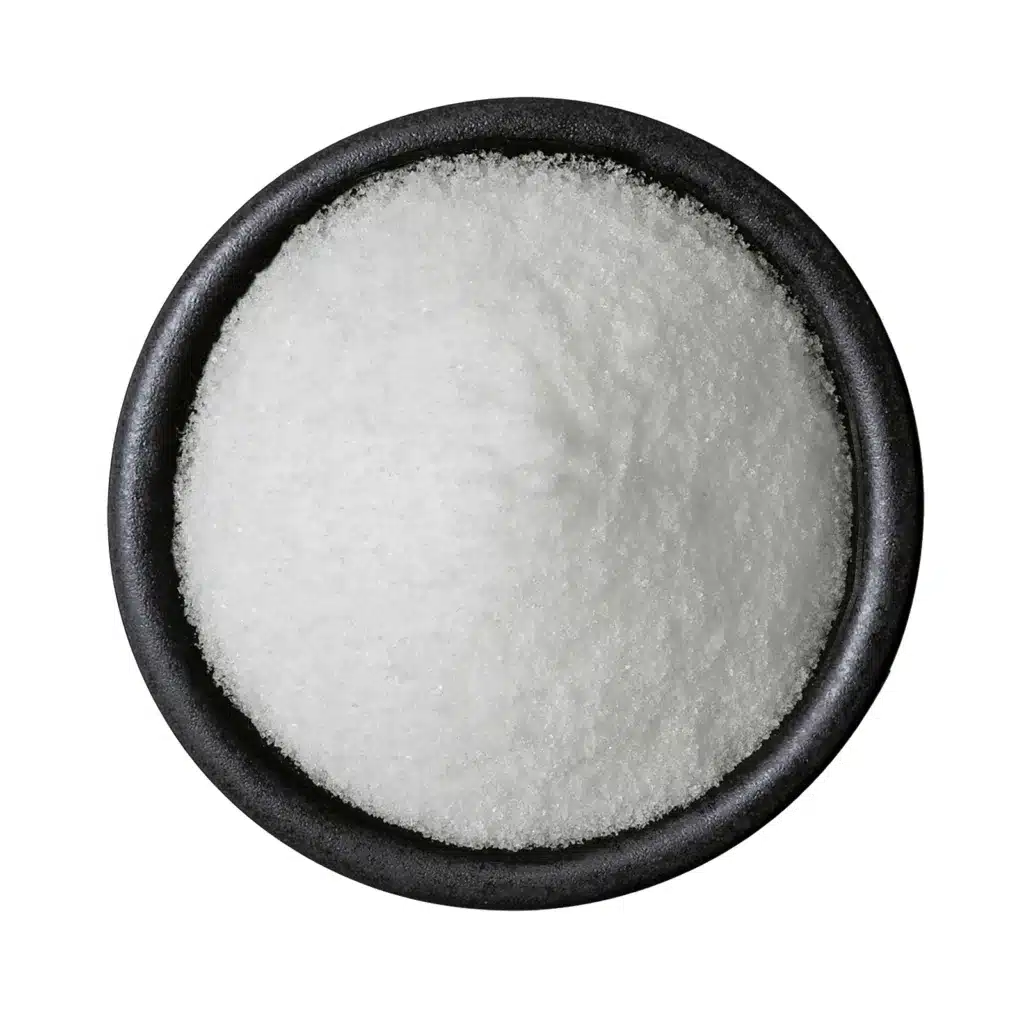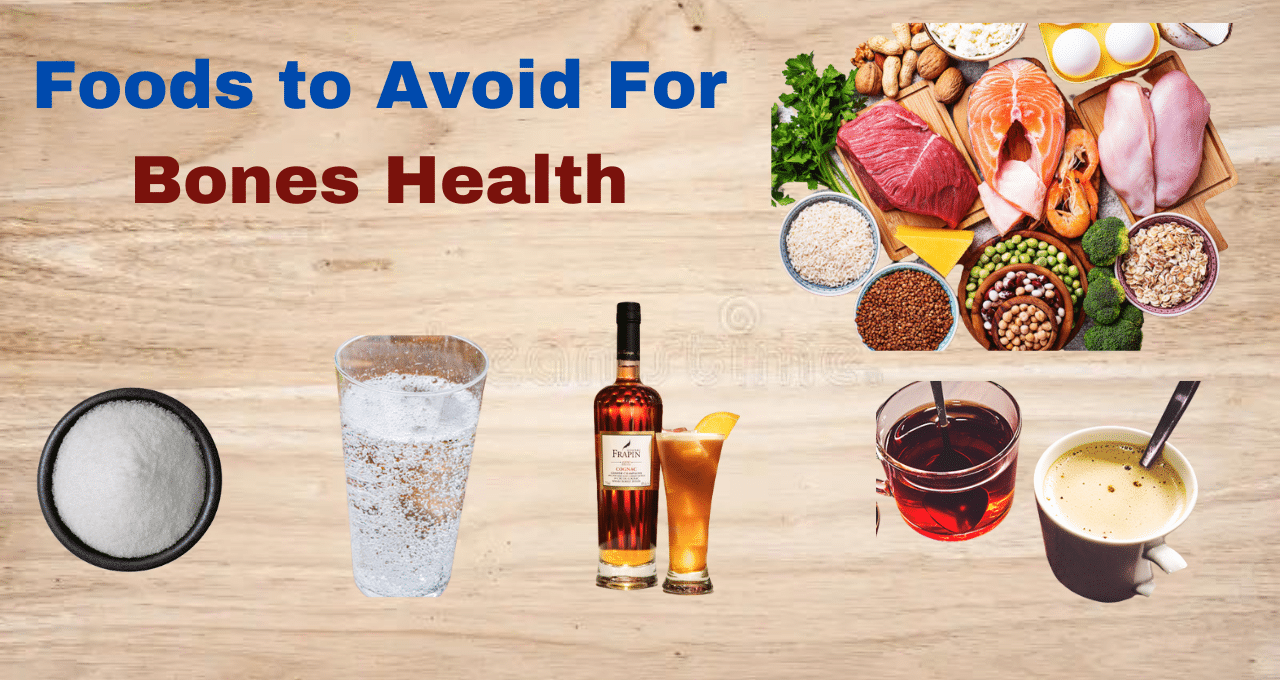Last Updated on July 20, 2024 by Manu Bhai
Foods to Avoid For Bones Health: Our bones are the silent scaffolding that supports our bodies, allowing us to move, stand tall, and perform various activities. They play a vital role in protecting our internal organs and serve as a storehouse for essential minerals like calcium and phosphorus. Maintaining strong and healthy bones is crucial for overall well-being, and diet plays a significant role in achieving this. While some foods can contribute to bone health, others can have a detrimental impact. In this article, we’ll explore the foods that are bad for your bones, so you can make informed choices for a healthier future.
Foods to Avoid For Bones Health
Foods to Avoid For Bones
Eating a healthy diet is important for overall health, including bone health. Here are 8 foods that can be bad for your bones:
Eating Excessive Salt
- White Salt
Salt is a common seasoning in many dishes, but excessive salt intake can be harmful to your bones. High-sodium diets can lead to increased calcium excretion through urine, which can weaken bones over time. Moreover, high salt consumption is often associated with an increased risk of hypertension, which can further harm bone health.

How to reduce salt intake
To reduce your salt intake, avoid processed foods, canned soups, and fast food, which tend to be high in sodium. Instead, opt for fresh, whole foods seasoned with herbs and spices to add flavor to your meals without compromising your bone health.
Carbonated Beverages
- Carbonated beverages like soda
Carbonated beverages like soda and certain energy drinks are loaded with phosphoric acid and caffeine. These substances can interfere with calcium absorption in the body, potentially leading to reduced bone density. Additionally, some carbonated beverages contain excessive sugar, which can contribute to weight gain. Carrying excess weight puts additional stress on your bones and joints, potentially leading to fractures and other bone issues. Consider replacing sugary sodas with healthier options like water, herbal tea, or calcium-fortified beverages to protect your bones.

Drinking Excessive Alcohol
- Drinking Alcohol
Moderate alcohol consumption is not necessarily harmful to bone health, and some studies suggest it may even have slight benefits. However, excessive alcohol intake can lead to a host of problems, including poor bone health. Chronic heavy drinking can interfere with the body’s ability to absorb calcium, magnesium, and other essential minerals. Additionally, alcohol can impair balance and coordination, increasing the risk of falls and fractures. To protect your bones, limit alcohol intake to moderate levels as defined by health guidelines, and try to incorporate alcohol-free days into your week.

Heavy consumption of Caffeine
- Caffeine
Caffeine is found in coffee, tea, energy drinks, and some soft drinks. While moderate caffeine consumption is generally safe, excessive intake can have a negative impact on bone health. Caffeine can increase calcium excretion through urine, potentially leading to lower bone density over time. If you consume a lot of caffeine, be mindful of your calcium intake and consider incorporating more calcium-rich foods into your diet, such as dairy products, leafy greens, and fortified plant-based milk.

Foods to Avoid For Bones Health
- High-Protein Diets
Protein is essential for bone health, as it provides the building blocks necessary for bone formation. However, excessively high-protein diets, particularly those rich in animal protein, can be detrimental to bone health. Such diets can lead to increased calcium excretion, potentially weakening bones. To maintain a healthy balance, aim for a well-rounded diet that includes both animal and plant-based sources of protein. This approach ensures you get the necessary nutrients for bone health without overloading your system with excessive protein.

- High-Phosphorus Foods
Phosphorus is an essential mineral for bone health, but too much of it can be harmful. High-phosphorus foods, such as soft drinks and processed meats, can disrupt the delicate balance of calcium and phosphorus in the body. When there is an excess of phosphorus relative to calcium, it can lead to calcium being leached from the bones, weakening them over time. To maintain a healthy balance, focus on consuming a variety of foods, including those that provide adequate calcium to offset phosphorus intake.
The Incredible 15 Health Benefits of Guava Fruit
Foods That Are Bad for Your Bones
A unique solution for a horrendous health problem plaguing 33% of women over 50
Foods to Avoid For Bones Health
Processed Foods
- Processed foods refer to any food that’s changed from its natural state.
Processed foods, including ready-to-eat meals, fast food, and packaged snacks, are often loaded with salt, sugar, unhealthy fats, and additives. These ingredients can have a detrimental effect on your overall health, including your bone health. The excessive salt in processed foods can lead to calcium loss, while the high sugar content can contribute to weight gain, which puts added stress on your bones and joints. To protect your bones, prioritize whole, unprocessed foods like fruits, vegetables, whole grains, lean proteins, and dairy or dairy alternatives.
- High-Acidity Foods
Foods with high acidity levels can potentially harm your bones. When the body processes these acidic foods, it may release calcium to help neutralize the acid, which can weaken bones over time. High-acidity foods to consume in moderation include citrus fruits, tomatoes, and certain types of vinegar. While these foods offer numerous health benefits, it’s essential to maintain a balanced diet that includes calcium-rich foods to counteract the potential calcium loss.
Conclusion
Maintaining healthy bones is essential for overall well-being, and your diet plays a crucial role in bone health. While some foods can promote strong bones, others can have detrimental effects. To protect your bones, be mindful of your salt, caffeine, and alcohol intake, and strive for a balanced diet rich in calcium and other essential nutrients. By making informed food choices, you can ensure that your bones remain strong and support you throughout your life. Remember, it’s never too early or too late to prioritize bone health and make positive changes to your diet for a brighter, healthier future.
Frequently Asked Questions (FAQs) About Foods That Are Bad for Your Bones
- Can I enjoy an occasional soda without harming my bones?
- Occasional consumption of carbonated beverages is unlikely to have a significant impact on your bone health. However, it’s best to limit your intake and choose healthier alternatives like water or calcium-fortified drinks to protect your bones.
- Are all types of caffeine harmful for bone health?
- No, moderate caffeine consumption is generally safe. The potential harm comes from excessive caffeine intake, typically from sources like energy drinks and excessive coffee consumption. It’s advisable to monitor your caffeine intake and ensure you maintain a balanced diet with adequate calcium.
- How much alcohol can I consume without negatively affecting my bones?
- Moderate alcohol consumption, as defined by health guidelines, is unlikely to have a significant negative impact on bone health. However, excessive drinking can harm your bones. It’s best to limit alcohol intake and incorporate alcohol-free days into your week.
- Can I follow a high-protein diet without compromising my bone health?
- Yes, you can follow a high-protein diet without harming your bones as long as it’s balanced. Include both animal and plant-based protein sources in your diet to ensure you get the necessary nutrients for bone health without excessive protein intake.
- What are some good sources of calcium that I can include in my diet?
- Dairy products like milk, yogurt, and cheese are excellent sources of calcium. If you’re lactose intolerant or prefer non-dairy options, consider fortified plant-based milk, leafy greens (such as kale and broccoli), tofu, and canned fish with bones (like salmon or sardines).
- Do all processed foods negatively affect bone health?
- Many processed foods are high in salt, sugar, and unhealthy fats, which can harm your bones and overall health. It’s best to limit your consumption of such foods and prioritize whole, unprocessed options to support your bone health.
- Is it possible to reverse bone damage caused by a poor diet?
- In some cases, adopting a healthier diet and lifestyle can help improve bone health. However, the extent to which bone damage can be reversed depends on factors such as age, the severity of the damage, and overall health. It’s essential to consult with a healthcare professional for personalized guidance.
- Can supplements help protect my bones if I have a diet that’s not ideal for bone health?
- Supplements can be beneficial, but they should not be used as a substitute for a balanced diet. If you are concerned about your bone health, consider discussing the use of calcium and vitamin D supplements with your healthcare provider. They can assess your specific needs and recommend the right approach.
- Are there specific foods that promote bone health?
- Yes, several foods promote bone health. These include dairy products, leafy greens, fortified cereals and milk alternatives, salmon, sardines, almonds, and sesame seeds. A balanced diet rich in these foods, along with regular exercise, can support your bones.
- At what age should I start paying attention to my bone health?
- Bone health is important at every age, but it’s crucial to start paying closer attention as you get older. Peak bone mass is typically reached in your 20s, so building strong bones during childhood and adolescence is vital. However, it’s never too late to adopt bone-healthy habits, even in adulthood and later life. Consult with a healthcare professional for personalized guidance based on your age and health status.
Banana Pancake Recipe: A Delicious and Healthy Breakfast
